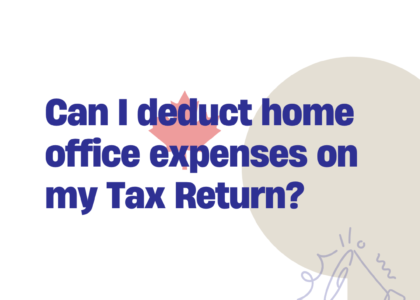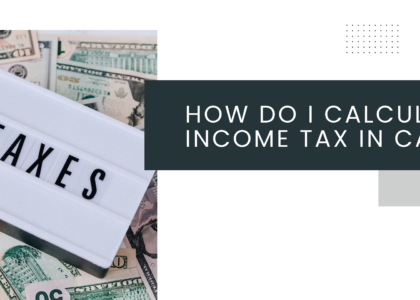As a small business owner in Canada, there are several strategies you can employ to save on taxes. Here are some key approaches:
1. Claim All Eligible Business Expenses
- Ensure you are claiming all allowable business expenses. This includes costs related to:
- Office supplies
- Rent or lease payments
- Utilities
- Salaries and wages
- Marketing and advertising
- Professional fees (accounting, legal, etc.)
- Keep detailed records and receipts to substantiate your claims.
2. Utilize the Small Business Deduction
- Canadian-controlled private corporations (CCPCs) can benefit from the small business deduction, which reduces the federal tax rate on the first $500,000 of active business income. Ensure your business qualifies and that you are taking full advantage of this deduction.
3. Incorporate Your Business
- Incorporating your business can provide tax advantages, such as lower tax rates on retained earnings and the ability to defer personal taxes. It also allows for income splitting with family members through dividends.
4. Contribute to a Registered Retirement Savings Plan (RRSP)
- As a business owner, you can contribute to an RRSP, which can reduce your taxable income. Contributions are tax-deductible, and the investment grows tax-deferred until withdrawal.
5. Consider a Tax-Free Savings Account (TFSA)
- While contributions to a TFSA are not tax-deductible, any income earned within the account is tax-free, and withdrawals do not affect your taxable income. This can be a good way to save for future business expenses or personal goals.
6. Use the Lifetime Capital Gains Exemption (LCGE)
- If you sell shares of a qualifying small business corporation, you may be eligible for the LCGE, which allows you to exempt up to $913,630 (as of 2022) of capital gains from taxation. This can significantly reduce your tax liability upon the sale of your business.
7. Pay Yourself a Salary or Dividends
- Determine the most tax-efficient way to pay yourself. Salaries are tax-deductible for the business, while dividends are taxed at a lower rate for the individual. A combination of both may be beneficial.
8. Keep Track of Capital Cost Allowance (CCA)
- Claim depreciation on your capital assets through CCA. This allows you to deduct a portion of the cost of your assets over time, reducing your taxable incom
- Consult a Tax Professional
Tax laws can be complex and subject to change. Consulting with a tax professional or accountant who specializes in small business taxation can help you identify additional strategies and ensure compliance with tax regulations.
ConclusionBy implementing these strategies, small business owners in Canada can effectively reduce their tax burden and improve their overall financial health. Always keep abreast of changes in tax laws and regulations, and consider seeking professional advice tailored to your specific situation.






